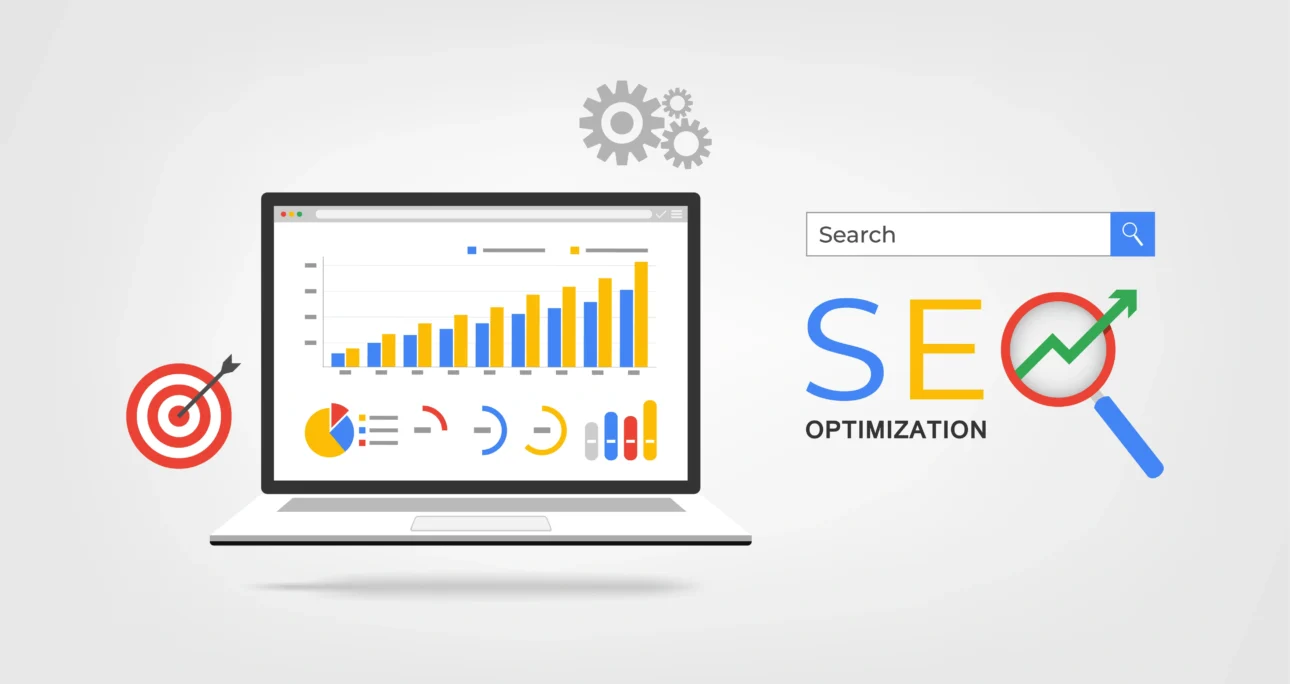Welcome to NexGenAI! In our digital age, SEO (Search Engine Optimization) is essential for any business looking to expand its online presence and connect more efficiently with its target market. This blog will teach you some key strategies that will boost your marketing strategies and enable your business to flourish.
Understanding SEO Fundamentals (Part I and II)
What is SEO?
SEO or Search Engine Optimization refers to the practice of improving a website to make it more visible in search engines such as Google. As more searches find your page in results for searches, its visibility increases and increases the chance that potential customers and visitors visit it.
Why Is SEO Essential?
SEO (Search Engine Optimization) is key for the success of any website as it increases search rankings, increasing online visibility and driving more organic traffic to it. A solid SEO plan can increase brand recognition as well as lead to additional leads that eventually turn into sales.
SEO Components
- On-Page SEO refers to optimizing certain aspects of your site such as HTML code, content, and internal links for better search rankings.
- Off-page SEO encompasses activities that take place outside your website’s pages, such as link building or social media advertising.
- Technical SEO involves improving various technical aspects of your website including speed and mobile-optimization.
Keyword Research
What is Keyword Research?
Keyword research involves identifying terms and phrases used by potential clients when searching for similar products and services to yours, which will enable you to gain insight into who your target audience is searching for and how you can reach them efficiently.
Keyword Research Tools
- Google Keyword Planner
- Ahrefs
- SEMrush
Techniques
- Identifying Relevant Keywords: Determine keywords that are pertinent to your company while having significant search volume.
- Assessing Keyword Competition: Utilize tools to assess how competitive your chosen keywords are.
- Using Long-Tail Keywords: Concentrate on using specific, longer-tail phrases which are less competitive but more likely to convert.
On-Page SEO
Title Tags
To optimize on-page SEO, create attractive and informative title tags which incorporate your most vital keywords. Keep these to no more than 60 characters to ensure proper display in search results.
Meta Descriptions
Write engaging meta descriptions that summarize your page content and include relevant keywords. Aim for 150-160 characters to ensure they are fully displayed in search results.
Header Tags
Header tags (H1, H2, H3) provide an effective way to organize content that search engines and readers will easily understand, as well as include keywords more easily into headers.
Content Optimization
- Keyword Placement: Integrate keywords naturally throughout your content.
- Content Relevance and Quality: Ensure your content is valuable, informative, and relevant to your audience.
- Utilizing Multimedia: Bring the excitement of multimedia elements such as videos and images into your content by including videos, images, and other forms of multimedia to increase engagement with readers.
Internal Linking
Internal linking will enable search engines to more effectively discover your website while keeping visitors engaged with it.
Off-Page SEO
Backlink Building
Acquire high-quality backlinks from reputable websites to boost your site’s authority and improve its ranking.
Social Signals
Engage with your audience on social media platforms to increase your online presence and drive traffic to your site.
Guest Blogging
Write guest posts for reputable blogs in your industry to gain exposure and acquire valuable backlinks.
Influencer Outreach
Partner with influencers in your niche to promote your content and gain credibility.
Technical SEO
Site Speed
Improve your site speed to enhance user experience and reduce bounce rates. Tools like Google PageSpeed Insights can help you identify areas for improvement.
Mobile Optimization
Ensure your website is mobile-friendly, as more users are accessing the internet via mobile devices. Use responsive design to provide a seamless experience across all devices.
URL Structure
Create clean, SEO-friendly URLs that include your primary keywords and are easy to read.
XML Sitemaps
Generate and submit an XML sitemap to help search engines index your site more effectively.
Robots.txt
Use the robots.txt file to guide search engine crawlers and prevent them from indexing certain parts of your site.
Local SEO
Google My Business
Set up and optimize your Google My Business profile to improve your local search visibility.
Local Citations
Ensure your business information is consistent across all online directories to boost your local SEO efforts.
Reviews and Ratings
Encourage satisfied customers to leave positive reviews and ratings on platforms like Google and Yelp to improve your online reputation.
Measuring SEO Success
Tools for Monitoring
- Google Analytics
- Google Search Console
- Other SEO Tools: Ahrefs, SEMrush
Key Metrics
- Organic Traffic: Measure the number of visitors coming to your site from search engines.
- Keyword Rankings: Track your rankings for target keywords.
- Backlink Profile: Monitor the number and quality of backlinks to your site.
- Bounce Rate and Session Duration: Analyze user engagement metrics to identify areas for improvement.
Adjusting Strategies
Use the data collected from these tools to analyze your SEO performance and adjust your strategies accordingly to achieve better results.
Advanced SEO Techniques
Schema Markup
Implement schema markup to provide search engines with additional information about your content, which can enhance your search visibility.
Voice Search Optimization
Optimize your content for voice search by using natural language and answering common questions your audience might have.
Content Clusters
Organize your content into topic clusters with a central pillar page and related sub-pages to improve your site’s structure and SEO.
Conclusion
Mastering SEO is essential for effective digital marketing. By implementing the techniques discussed in this blog, you can improve your website’s visibility, drive more traffic, and achieve your marketing goals.
At NexGenAI, we understand the complexities of SEO and are here to help you navigate this dynamic landscape. Explore our website nexgenai.tech to learn more about our services and how we can assist you in optimizing your SEO strategies. For any inquiries, feel free to contact us at contact@nexgenai.tech.
Happy optimizing!
